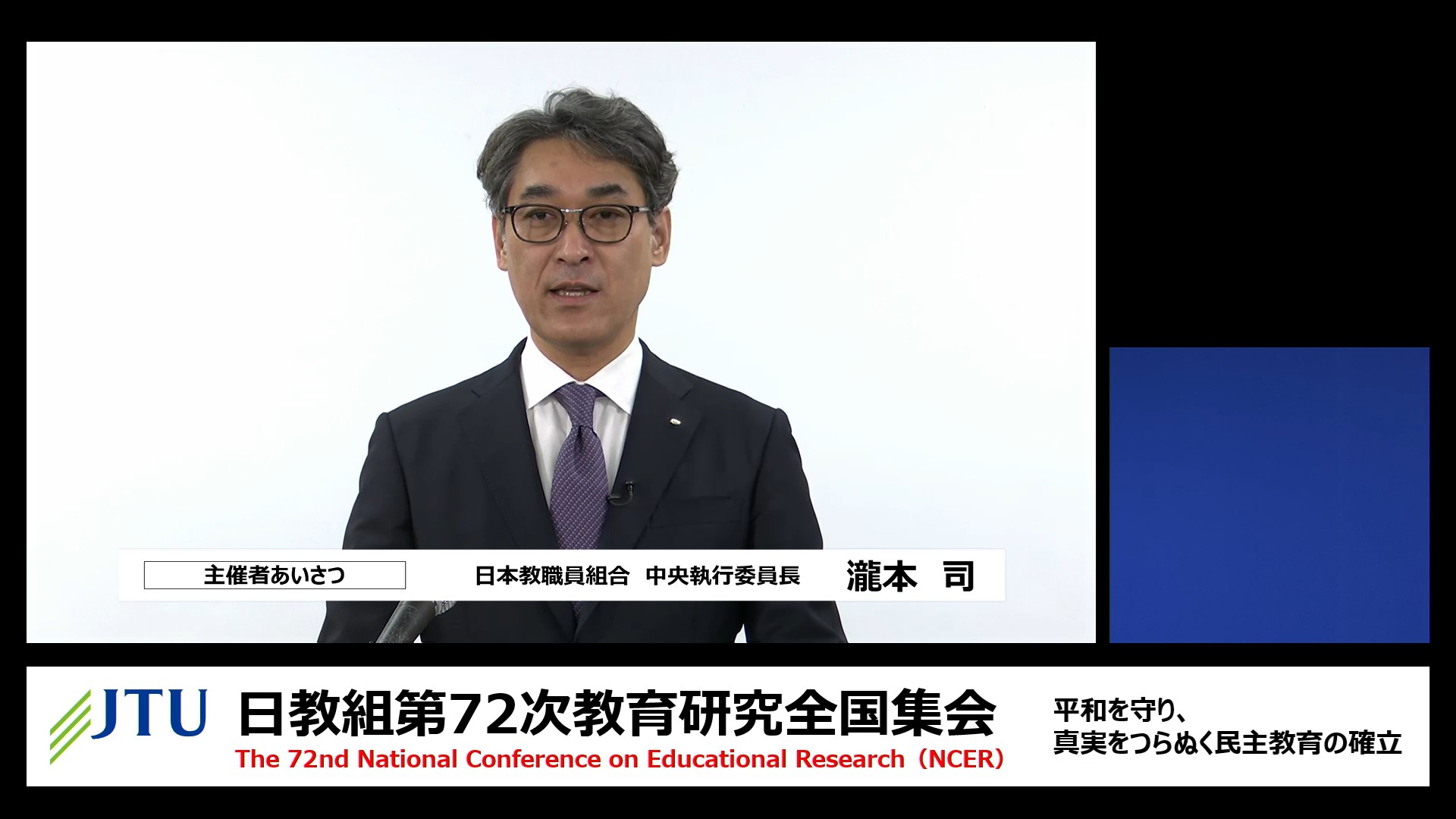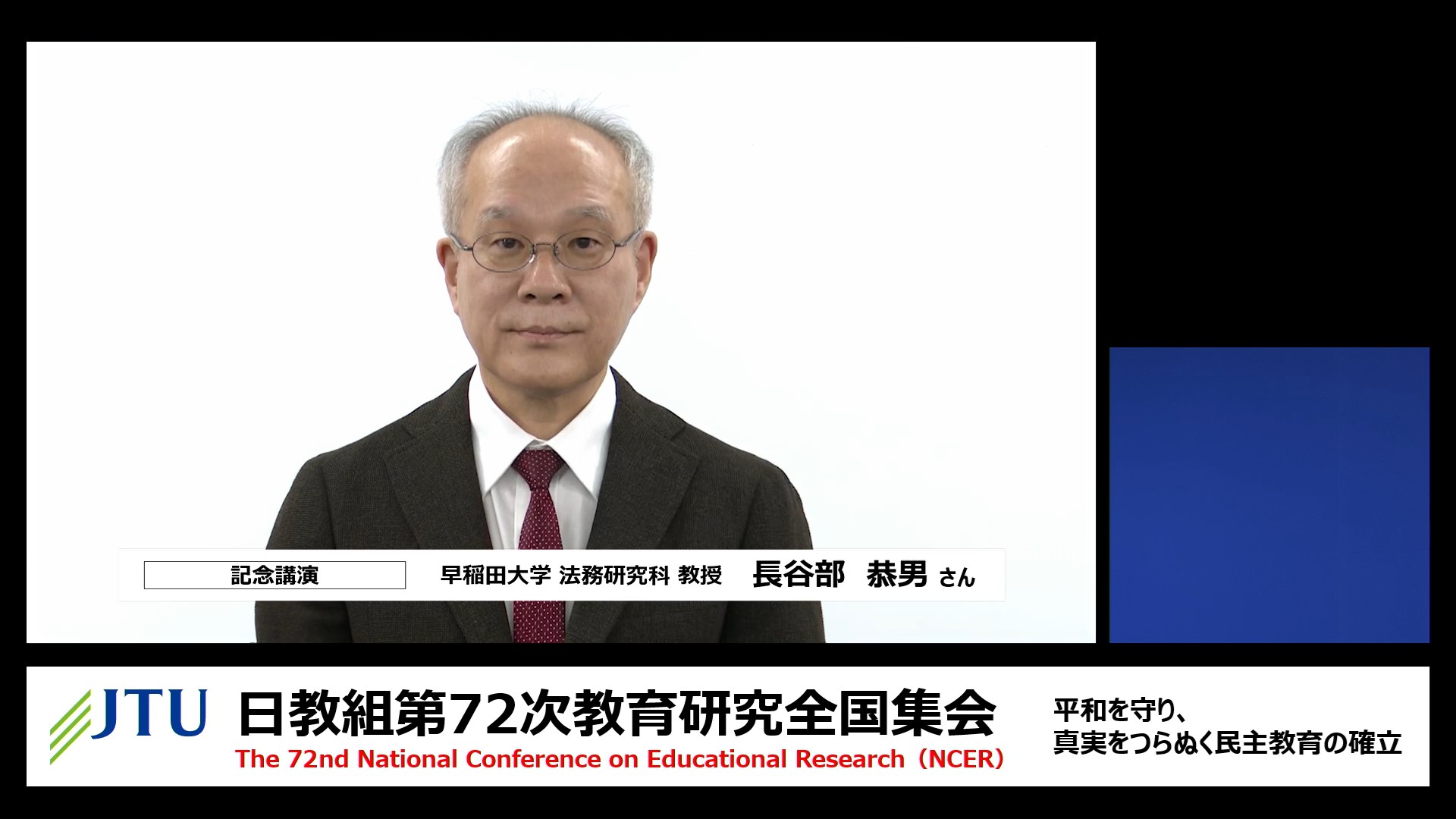- Home
- The 72nd NCER
ABOUT JTU
The 72nd NCER
2023/01/31


The 72nd National Conference for Educational Research, NCER, was virtually held from 27th to 29th January 2023 with a total of 7,000 educators from all over Japan.
At the plenary on 29th January, Tsukasa Takimoto, President of Japan Teachers’ Union, JTU, addressed his opening remarks as follows. “Due to the COVID-19 pandemic, the distribution of one digital device per child has progressed rapidly, and the debate over “individualized optimal learning” has increased. However, we must be careful not to impede children’s mutual learning or force them into performance-based systems. It is also necessary to be aware of the concerns that teachers may not be able to handle in the current class size, and the risk of accelerating commercialisation in education. We value student-centered educational practices and educational and research activities while listening to the thoughts and ideas of students.” Also, he stressed “there is a serious shortage of teachers. At schools, the number of educators taking sick leave is already on the rise. The Ministry of Education, Culture, Sports, Science and Technology, MEXT, must promote the “Work-style Reform of School” and improve working conditions of educators. There is a move to increase the adjustment and raise the salary level of teachers first, but the law that allows teachers to work as much as the authorities want for a fixed payment must be abolished or fundamentally revised. There is an urgent need to eliminate the long working hours of educators and advance the “Work-style Reforms of School”.
After the opening remarks, Professor Yasuo Hasebe from Waseda University delivered the keynote speech on “From the Constitution of the Empire of Japan to the Constitution of Japan: Past and Future of the Constitution”. In response to the world situation, there is a growing movement to revise Article 9 of the Constitution. He explained the history of the establishment of the Constitution of Japan and the meaning of the three major principles in Article 9, which is the reason why it is called the Peace Constitution: “renunciation of war”, “non-maintenance of war potential’”, and “denial of the right to belligerency’”. Finally, he concluded “the Constitution of Japan is a strict constitution and more difficult to amend than ordinary laws. By writing down the basic principles of medium- and long-term society, we separate them from the daily politics of adjusting short-term interests and avoid touching them easily”.
On 28th and 29th January, 24 thematic breakout sessions were organised with a total of 475 reports of teaching practice. Difficulties and stressful situations such as measures against the new coronavirus and the introduction of a new curriculum were also reported.


